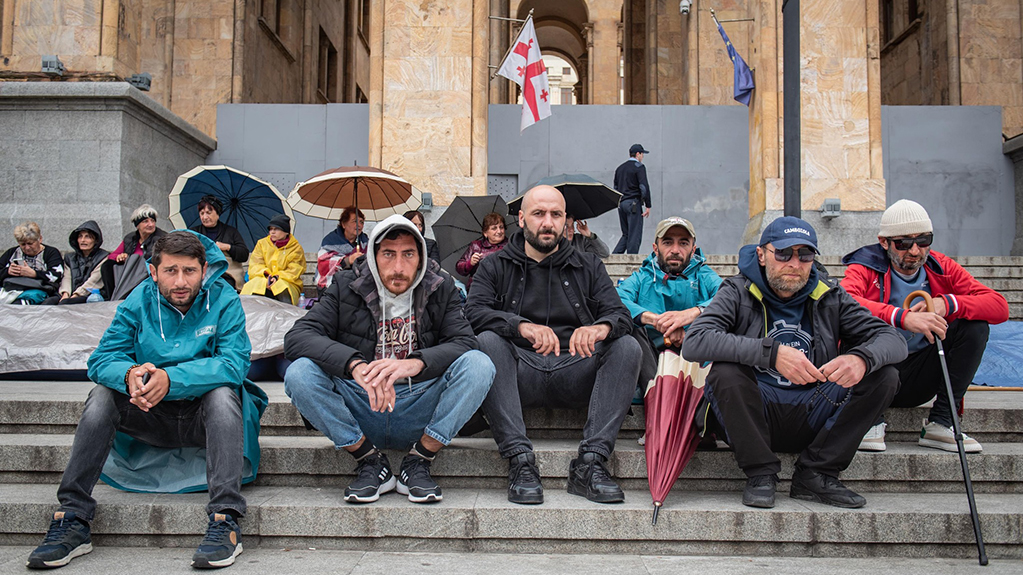Residents of Shukruti village in Chiatura have ended their hunger strike outside the Georgian Parliament but will continue their protest until an agreement is signed with the company. This decision came after Rati Ionatamishvili, chairman of the Parliamentary Committee on Human Rights Protection and Civil Integration, met with the demonstrators and offered to mediate negotiations with Georgian Manganese. The protesters, who had been on hunger strike for 43 days and frequently required emergency medical care, were taken to hospitals for rehabilitation.
News
"A representative of the state has become involved in the process. A meeting has already taken place, and we agreed that
a working group will be formed, which will include representatives from our company and the state. This group will draft a fair contract.
The process will be coordinated by the Ministries of Economy and Health, and the next meeting is scheduled for October 15, when more details will be announced," said Giorgi Neparidze, one of the rally participants, in an interview with Mtis Ambebi.
On October 17, at 8:00 p.m., a solidarity rally of Shukruti residents will be held near the Parliament.
Residents of Shukruti have been continuously protesting at the Korokhnali mine in Chiatura since March 13. Prior to the protest, a large fissure, nearly 2 kilometers long, had appeared in the middle of the village. This crack runs through the entire village, growing larger and deeper, causing residential homes to collapse.
Since neither the central government nor anyone else responded to the uncontrolled activities of Georgian Manganese or the plight of the victims, five protesters sewed their mouths shut on September 1. On September 11, the protest moved to Parliament in Tbilisi, where 12 people, including women, began a hunger strike. The protesters have remained outdoors for 24 hours a day, even during heavy rain, because the Ministry of Internal Affairs did not permit them to set up a tent. The court has yet to consider the lawsuit filed by the Shukruti residents, requesting an order to prevent the Ministry of Internal Affairs from obstructing them from erecting a tent within the legal time frame."
Georgian Manganese has sued the protest participants and their relatives, demanding 5.5 million GEL in damages. Additionally, they are required to vacate their yards and plots immediately upon the first request, meaning that damaged, dilapidated, or endangered houses must be demolished, the area cleaned, and handed over to the company in its current condition. The court has seized the property of the protestors and their relatives. All those who took part in the protest and worked for Georgian Manganese, its subsidiaries, or contractors, have been dismissed from their jobs.
Georgian Manganese LLC has been mining manganese in the Chiatura municipality since 2007. In both Shukruti village and neighboring areas, conditions equivalent to an ecological disaster have emerged. The situation worsened significantly after 2017, when the Georgian Dream government appointed a special manager to oversee the company, a role that continues to this day.















